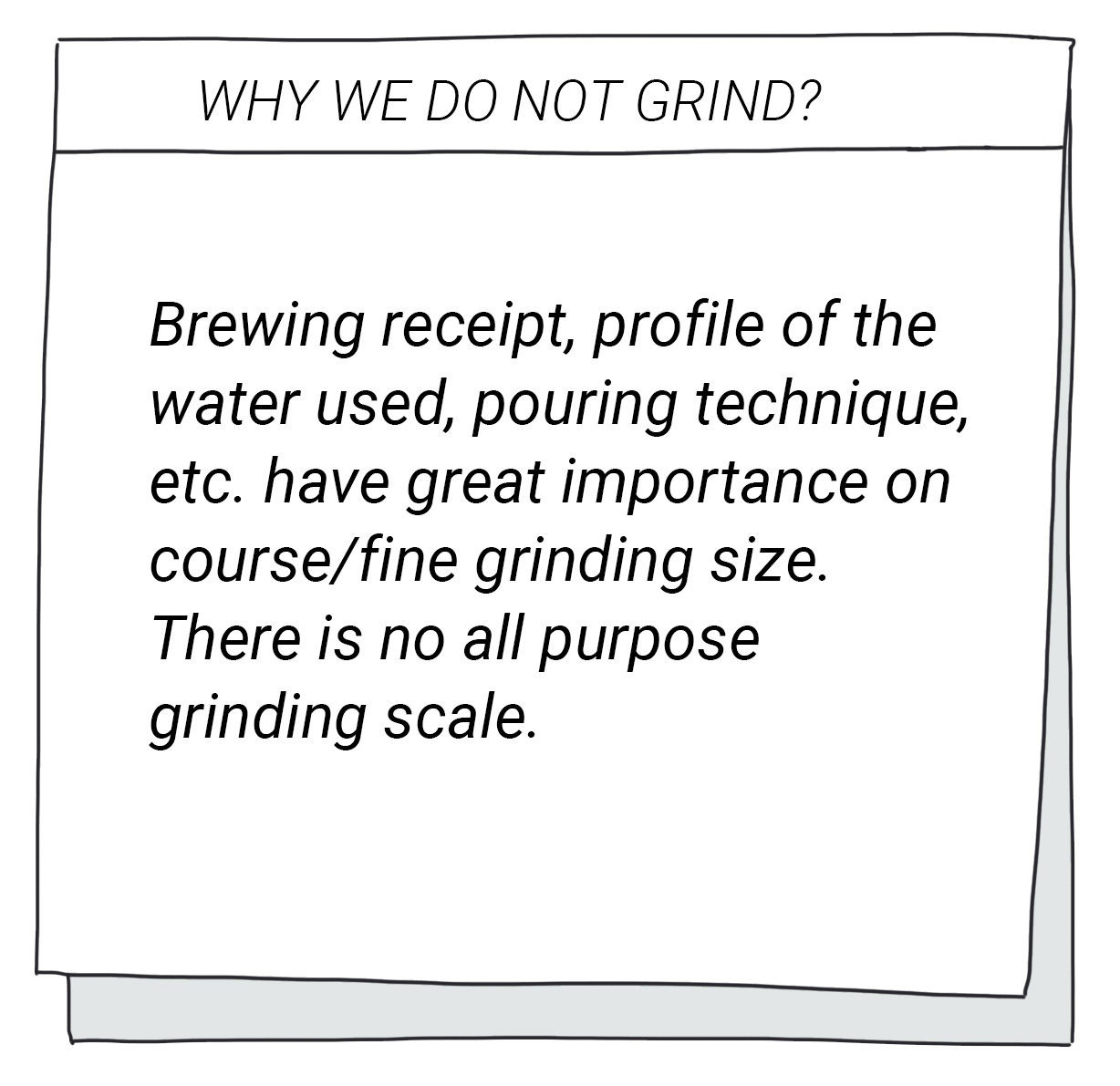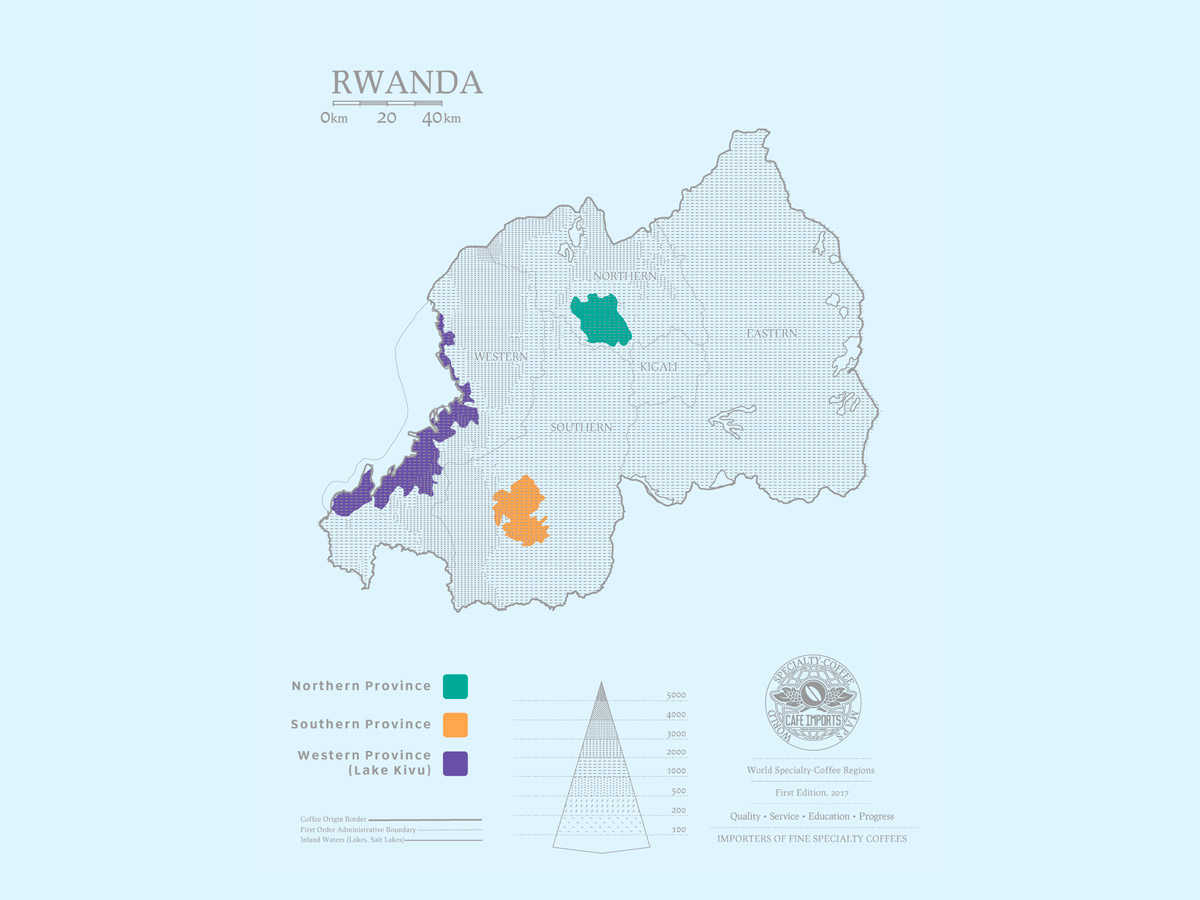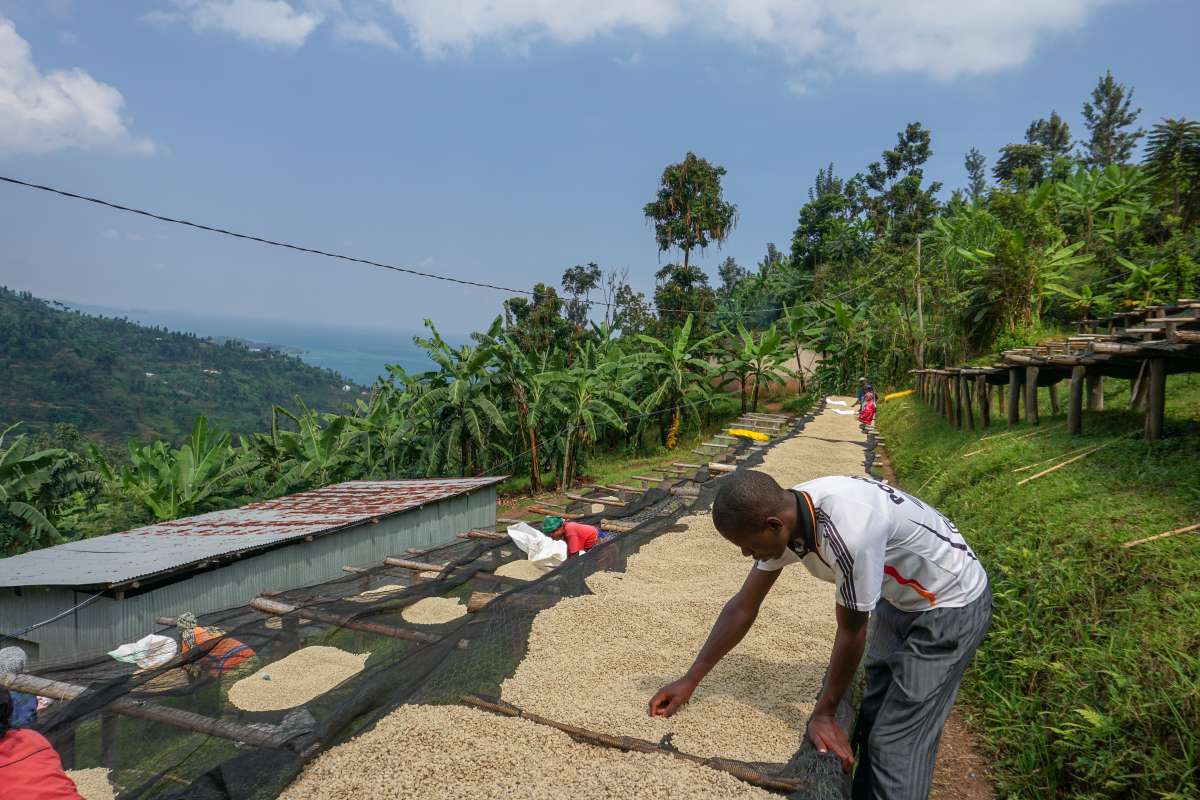0
CHECK THE PRODUCTS
Region: Nyamasheke District, Mahembe
Washing Station: Nyambumera Washing Station
Variety: Bourbon, Jackson
Process: Washed
Altitude: 1600-2000m
Harvest: 2019/2020
Supplier: Cafe Imports
Espresso/Brew
250gr whole bean :
1 kg Whole Bean :



Notes Of A Roaster From The Underground: hazelnut, caramel, and a sweet, sugary mouthfeel
 Omni-roast (Espresso/Brew)
Omni-roast (Espresso/Brew)
This coffee comes from the Nyambumera washing station in the Nyamasheke District of Rwanda, a washing station owned and operated by the COOPAC cooperative. The cooperative was founded in 2001 and now has more than 8,000 farmer members, delivering to 50 washing stations. This small lot comes from a farm area of just under 1.75 hectares and represents about 4,290 coffee trees total.
It is coffee delivered by two producers: Jean Buranda and Didace Bucyana. Coffees in Rwanda typically undergo both dry and wet fermentation: This lot was depulped and fermented for 12 hours dry before being soaked for 24 hours. The mucilage is removed by washing four times, then the coffee is dried on raised beds for 15–21 days.

As most African coffee-producing countries (with the exception of Ethiopia), Rwanda was planted in coffee by colonial interests from Europe in order to supply the booming market back on their home continent. High-yield, low-cost varieties were introduced in the 1930s and made compulsory to farmers by Belgian colonials, offering little in the way of quality incentive or development: Coffee was intended to be a cheap commodity available in abundance, and the colonial government held strict mandates over exports in addition to imposing very high taxes on growers, practically enslaving them to the industry. Roughly 75 percent of the land mass of Rwanda is used for agriculture, and more than 35 percent of its population are subsistence farmers, many of whom rely on coffee for at least a portion of their income.
While coffee became the staple agricultural export by the 1990s (despite very low market prices), its production, along with the national economy in general, was devastated by the genocide in 1994. Nearly 1 million people were killed in the national tragedy, which stalled development and slowed progress for nearly a decade. Targeted programs initiated by the government in the early 2000s encouraged Rwandans to use specialty coffee as one of the means to recover and to create a new niche agricultural market. The erection of the first washing station with USAID support in 2004, and the country was the first to host a Cup of Excellence auction, bringing international recognition to the “Land of a Thousand Hills” as a potential producer of exceptional quality.
Today, this tiny country (roughly the size of Maryland) contributes less than 0.2 percent of the global coffee supply, but its reputation for special quality and unique characteristics—not to mention the incredible story of its development as a specialty-coffee origin since the genocide—have earned Rwanda a significant place at the table among African origins.

One of the major obstacles facing the absolute embrace of Rwandan coffee is the presence of a peculiar and particular defect that occurs in lots from here, as well as Burundi and, to a lesser degree, nearby Democratic Republic of Congo. Colloquially called “potato defect,” it is caused by the presence of bacteria in the coffee cherry, which after roasting imparts an unmistakable smell and taste remarkably similar to that of a raw potato. The defect is largely contained within individual beans, which means that identification of the taint is crucial to maintain high specialty quality, however, it is not visible and is virtually undetectable in the parchment or green coffee.
At Café Imports, we thoroughly cup test and analyze the aroma of multiple samples of the green coffees we buy from affected areas, including our Rwandan coffees.
Current intensive research into eradicating the defect or improving identification and sorting techniques holds the key to advancing Rwanda’s coffee into the specialty mainstream; until then, potato defect continues to be a reason buyers sometimes pause even when presented with stunning cup characteristics and quality.
